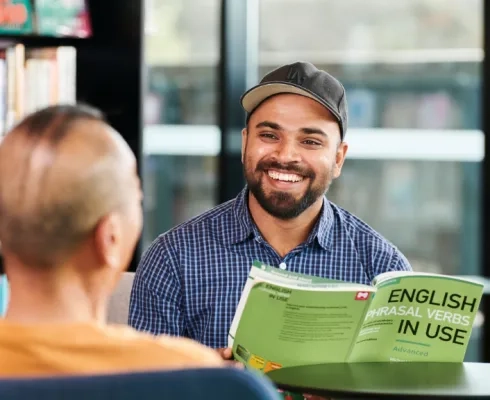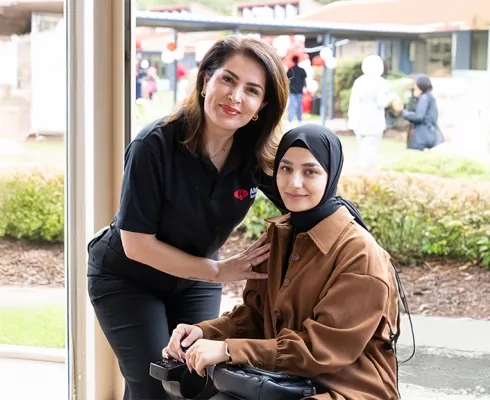COVID-19 and kids
Many parents are looking for advice about how to best support their children to cope with the coronavirus pandemic. With the situation rapidly changing, frequent news of people becoming unwell, and many children unable to continue with their normal activities, it is a very unsettling time for families. The Royal Children’s Hospital has some great advice for parents:
1. Talk about coronavirus with your children
2. Be open and honest, but age-appropriate
3. Stay positive and hopeful
4. Limit information children get through the media
5. Focus on the things children can control
6. Stick to routines where possible
7. Show your children that you are calm
8. Look out for signs of anxiety or stress in your children
9. Look after yourself too See more here: https://www.rch.org.au/kidsinfo/fact_sheets/Supporting_children_and_young_people_to_cope_with_the_coronavirus_COVID-19_pandemic/Ten favourite cartoons for kids in isolation
1. Looney Tunes. See the crazy antics of Bugs Bunny, Daffy Duck and Wile E. Coyote
2. Tom and Jerry. The cat mouse games of an all-time favourite animation
3. Scooby-Doo. An animated mystery comedy television series produced by Hanna-Barbera
4. The Flintstones. The stone-age fun and foible of Fred and his family
5. Duck Tales. When Donald Duck joins the Navy his uncle must look after his nephews.
6. The Jetsons. Hanna-Barbera's Space Age counterpart to The Flintstones.
7. Road Runner. Hilarious slapstick as the hapless coyote tries to catch the Road Runner.
8. Chip n’ Dale. Chip and Dale are two chipmunks who start a detective agency.
9. Teenage Mutant Ninja Turtles
10. Yogi Bear. Yogi and his friends from Jellystone Park became household names in the 60s.
Keeping kids learning
With most kids now learning from home, the University of Melbourne has come up with five tips for parents who want to keep their kids learning.
1. Focus on what you can do
Under strained and stressful conditions, fear can result in panic, and when panicked we act impulsively. Explain to children the importance of approaching the situation calmly and share with them the steps you’ve taken at home to be prepared.
When there is this kind of uncertainty and confusion, it’s important to focus on the things we can do as this can help to allay some of those larger anxieties.2. Establish a daily routineSupport your child to maintain a routine while at home. This will look different depending on the age of your child – for example, older children are more likely to adhere to a timetabled school day.
Irrespective of age, keeping your child to a routine schedule will create predictability and reduce anxiety.3. Stay connectedWhile social distancing is vital, staying in touch with friends is also important for all children.So if your child is at home, give them a chance to connect with peers during their breaks, like they would during recess and lunch at school. There are a host of technology options available to support virtual connections – whether it’s FaceTime with grandparents, or having a Netflix ‘watch’ party with friends.4. Stay activeIf it’s practical, spend some time outside riding, jogging or walking. It’s worth also looking into some of the many fitness apps available that can ‘organise’ your activity for you.Staying active as a family can also have positive impacts on mood for everyone, not just kids, so it’s also important adults get involved.5. Handling anxietyIn terms of a school closure, your child might have questions you cannot answer yet like “when is this going to end?” and “when will I be able to go back to school?”.It’s important to avoid making assurances you can’t keep but validate your child’s emotion around the uncertainty and assure them that you will share information as you have it.Remember that children will take a lead from adults about how to behave in difficult situations, maintaining a sense of calm will help children cope.It is also equally important to look after yourself as a parent or carer; keep an eye on your sleeping, eat well, spend time doing activities you enjoy and look into relaxation and mindfulness techniques to help maintain your calm (something you will need with potentially bored kids at home).Schooling at home
The Department of Education and Training have produced a number of new in-language resources available to support parents from CALD communities whose children are remote learning from home.
The resources include factsheets, tips and forms parents need to fill out if their children need to attend school.
On the recommendation of the Australian Health Protection Principal Committee, early childhood education and care services can continue to operate at this time.
This means that parents can continue to have their child attend their early childhood service, or they may choose to support their child to learn from home.See more details here:
https://www.education.vic.gov.au/parents/learning/Pages/home-learning-translated-advice.aspx
Tips for families in isolation
https://www.redcross.org.au/stories/covid-19/coronavirus-tips-for-self-isolating
https://www.medicalone.com.au/tips-for-self-isolation
https://www.bbc.com/future/article/20200408-an-astronauts-guide-to-surviving-isolation
https://www.heartfoundation.org.au/news/five-hearty-eating-tips-for-home-isolation






